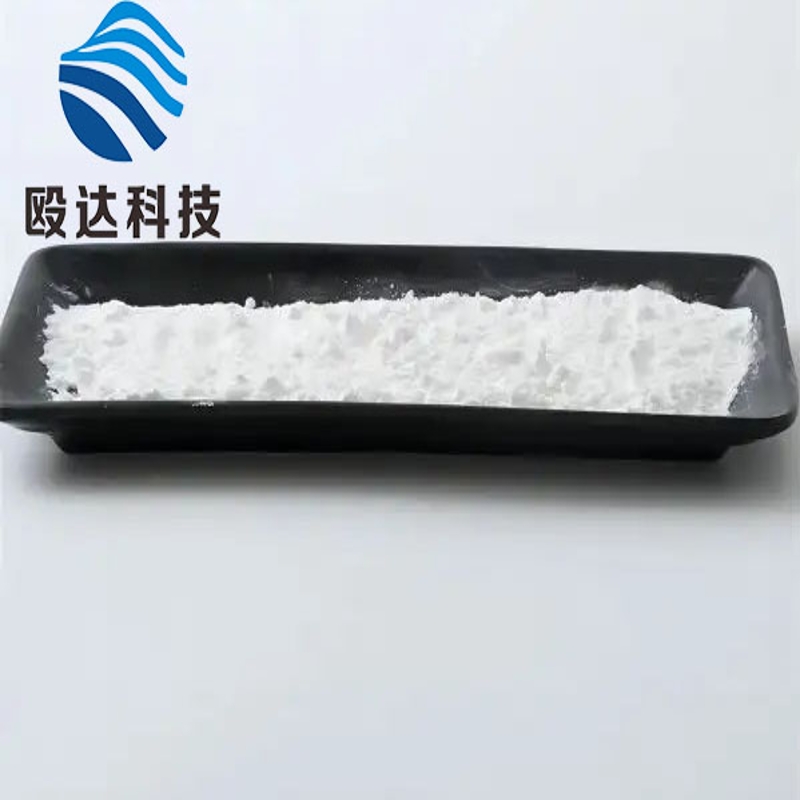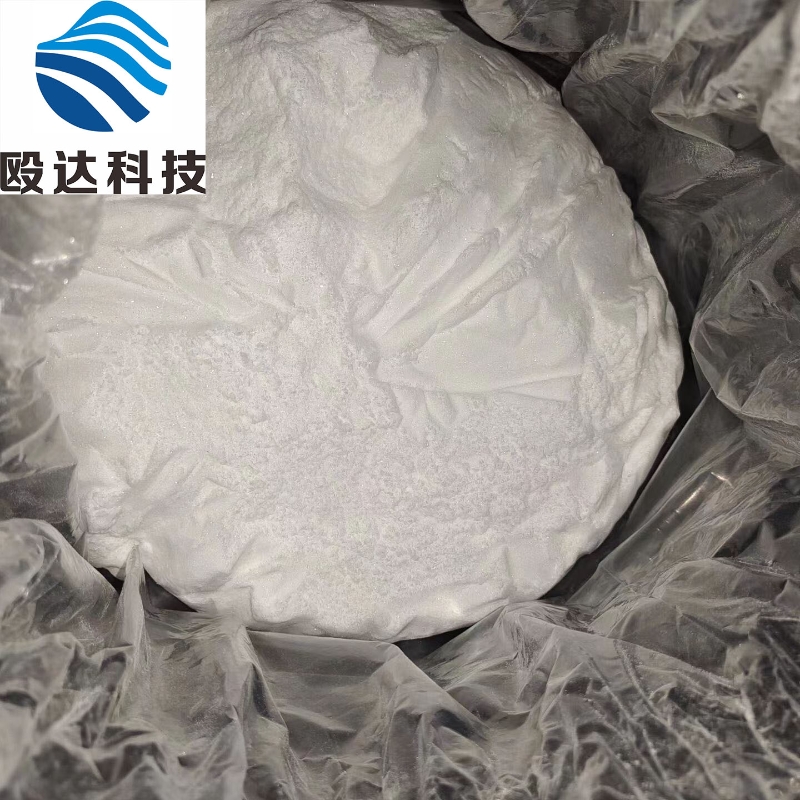Systemic lupus erythematosus (SLE) new drug! AstraZeneca type I interferon receptor targeting mAb anifrolumab key phase III clinical success!
-
Last Update: 2020-01-23
-
Source: Internet
-
Author: User
Search more information of high quality chemicals, good prices and reliable suppliers, visit
www.echemi.com
January 23, 2020 / BIOON / -- recently, the results of the tulip 2 study (nct02446899) on the key phase III of AstraZeneca in the treatment of systemic lupus erythematosus (SLE) were published in the international top medical journal NEJM with the title of trial of anifrolumab in active systemic lupus Erythematosus 。 Tulip 2 is a multicenter, multinational, randomized, double-blind, placebo-controlled phase III study designed to evaluate the efficacy and safety of intravenous injection of anifrolumab and placebo in adult patients (aged 18-70 years) with moderate to severe active, autoantibody positive SLE undergoing standard care (SOC) These patients must be taking any combination of one or more of the following drugs: oral corticosteroids (OCs), antimalarials, and / or immunosuppressants In the study, patients were randomly assigned with a ratio of 1:1 and received intravenous infusion of 300mg of anifrolumab or placebo once every 4 weeks for 48 weeks The primary end point of the study was at week 52 to measure the efficacy of anifrolumab in reducing disease activity using a comprehensive Lupus Assessment (bicla) response rate based on the British Isles Lupus Assessment Group Bicla response requires that all organs with disease activity at baseline be improved and no new flares The results showed that the study reached the primary end point: when combined with standard care, anifrolumab resulted in a statistically significant and clinically significant reduction in lupus disease activity compared with placebo At week 52, the response rates of bicla in anifrolumab group and placebo group were 47.8% and 31.5%, respectively (difference: 16.3%, 95% CI: 6.3-26.3, P = 0.0001) In addition, the response rates of anifrolumab group and placebo group were 48.0% and 30.7% respectively, and 46.7% and 35.5% respectively Secondary endpoints associated with glucocorticoid dose and severity of skin disease, but excluding the count of swollen and soft joints and annual flare rates, also showed significant benefits of anifrolumab In the study, the security of anifrolumab is consistent with the previous study The incidence of herpes in anifrolumab group was higher than that in placebo group The incidence of herpes zoster and bronchitis was 7.2% and 12.2% respectively in patients treated with anifrolumab One patient died of pneumonia Tulip 2 is the second phase III study to evaluate anifrolumab in the treatment of adults with moderate to severe SLE The positive bicla response in this study is consistent with a pre specified analysis of tulip 1 in the previous phase III study However, tulip 1 did not reach the primary end point of SLE responder index 4 (sri4) SLE is a debilitating autoimmune disease, but only one new treatment has been approved in the past 60 years The results of tulip 2 study are encouraging, indicating that anifrolumab reduces the disease activity of SLE patients by targeting type I IFN receptor Anifrolumab is an all human monoclonal antibody It binds to IFN receptor subunit 1 and blocks the activity of IFN type I, including IFN α, IFN β and IFN ω Interferon I is a cytokine involved in the inflammatory pathway 60% - 80% of adult SLE patients have elevated type I interferon gene signature, which has been shown to be related to disease activity Tulip is a key phase III project to evaluate the efficacy and safety of anifrolumab in the treatment of SLE (uncontrolled lupus through interferon pathway) The project includes two phase III studies (tulip 1, tulip 2) These studies were carried out in adults with moderate or severe active autoantibody positive SLE who received standard nursing program, and evaluated the efficacy and safety of anifrolumab compared with placebo In the tulip 1 study, 460 patients were randomly given 150mg dose of anifrolumab, 300mg dose of anifrolumab and placebo once every 4 weeks in 1:2:2 Sri4 was used to evaluate the efficacy of anifrolumab in reducing disease activity The results were published in August 2018 In the tulip 2 study, 373 patients were randomly given 300mg dose of anifrolumab or placebo once every 4 weeks In this study, bicla was used to evaluate the efficacy of anifrolumab in reducing disease activity After a comprehensive evaluation of tulip 1 study, bicla was selected as the main end point of tulip 2 study, which is a recognized tool for measuring disease activity in adults with SLE In addition, tulip project also includes a long-term extension study of SLE III and a phase II study of lupus nephritis Current situation of new drugs for SLE: benlysta, GlaxoSmithKline, is an outstanding drug It has been approved by China that SLE is a chronic autoimmune disease Sexual diseases, the immune system attacks the healthy tissues of the body If the disease is not controlled, it will lead to a series of symptoms, including pain, rash, fatigue, key swelling, fever, long-term organ damage, and even premature death At the same time, the disease will also have a huge impact on the physical and mental health of patients It is estimated that there are about 5 million lupus patients in the world, and traditional treatment methods include steroids and immunosuppressants In the past 60 years, only one new drug has been approved for the treatment of lupus, namely, bynlysta (belimumab) of GlaxoSmithKline, which was approved by the United States and the European Union in 2011 and used in adult patients with auto antibody positive SLE Anifrolumab is the first specific inhibitor of B lymphocyte stimulating factor (BLyS), which can block the binding of soluble BLyS (a B cell survival factor) to BLyS receptor on B cell Benlysta does not directly bind to B cells, but by binding to BLyS, it can inhibit the survival of B cells (including self reactive B cells) and reduce the differentiation of B cells into plasma cells that produce immunoglobulins Benlysta can reduce the number of abnormal B lymphocytes that can aggravate the condition of lupus patients These abnormal B lymphocytes can cause the immune system to produce cells that attack blood vessels and other healthy tissues, thus causing lupus and other immune system diseases In China, bentysta (trade name: piritan) was approved by nmpa in July 2019 As the world's first approved biological agent for the treatment of SLE, beilitang is approved to be combined with conventional treatment in China, which is applicable to adult SLE patients with high disease activity and positive autoantibody on the basis of conventional treatment Baileyuzumab is a kind of all human monoclonal antibody, which is administered intravenously to inhibit the proliferation and differentiation of B cells and induce the apoptosis of self reactive B cells, so as to reduce the autoantibodies in serum and achieve the purpose of treating SLE Original source: trial of aniferolumab in active systemic lupus erythematosus
This article is an English version of an article which is originally in the Chinese language on echemi.com and is provided for information purposes only.
This website makes no representation or warranty of any kind, either expressed or implied, as to the accuracy, completeness ownership or reliability of
the article or any translations thereof. If you have any concerns or complaints relating to the article, please send an email, providing a detailed
description of the concern or complaint, to
service@echemi.com. A staff member will contact you within 5 working days. Once verified, infringing content
will be removed immediately.







